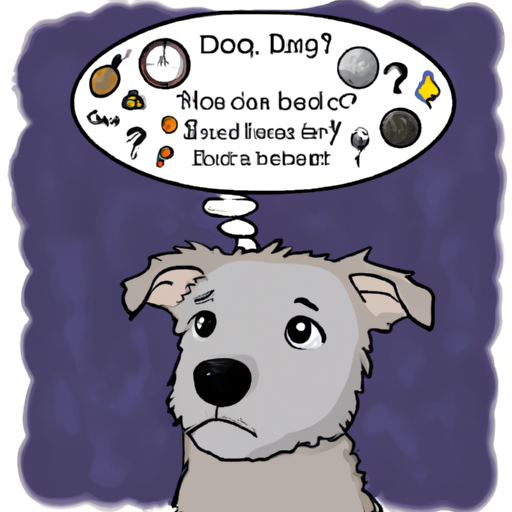As a dedicated caregiver, it is essential to understand the behavior of your furry companion. Dogs, much like humans, have their own ways of communicating, and one such method is through barking. But, why do dogs bark a lot? Is it a sign of distress, or is it merely their way of expressing themselves? Let’s delve into this topic to gain a more profound understanding of our canine friends.
Table of Contents
- The Science Behind Barking
- Common Reasons for Excessive Barking
- How to Handle Excessive Barking
- Preventive Measures and Training
- Frequently Asked Questions
Key Takeaways
- Understanding the reasons behind a dog’s excessive barking can help in addressing the issue effectively.
- Training and preventive measures can significantly reduce excessive barking.
- It’s crucial to consult with a professional in case of any severe behavioral changes in your dog.
The Science Behind Barking
Barking is a natural behavior for dogs and is their primary way of communicating. It’s how they express their feelings, wants, and needs. However, the reasons behind excessive barking can vary.
According to the American Kennel Club, dogs bark for a variety of reasons. It could be a response to environmental stimuli, such as seeing a stranger at the door or hearing a loud noise. Sometimes, it could be due to emotional reasons like anxiety, fear, or loneliness.
Common Reasons for Excessive Barking
Here are the most common reasons why dogs may bark excessively:
-
Attention-seeking: Dogs often bark to get your attention. This could be because they want to play, eat, or simply crave your companionship.
-
Boredom or Loneliness: Dogs are social animals and don’t like being left alone for long periods. If they are bored or lonely, they may bark excessively.
-
Anxiety: Dogs suffering from separation anxiety often bark incessantly when their caregiver is away.
-
Response to Other Dogs: Hearing other dogs bark can trigger your dog’s barking.
-
Health Issues: Sometimes, excessive barking could be a symptom of a health issue. If your dog’s barking habits suddenly change, it’s best to consult with a veterinarian.
How to Handle Excessive Barking
Handling excessive barking requires patience and understanding. Here are some strategies that can help:
-
Ignore the Barking: If your dog barks to seek attention, the best response is to ignore them until they stop.
-
Use Distractions: Distract your dog with toys or activities when they start barking.
-
Training: Use commands like ‘quiet’ or ‘enough’ to train your dog to stop barking on command.
-
Consult a Professional: If the barking is due to anxiety or fear, it’s best to consult with a professional dog trainer or a behaviorist.
Preventive Measures and Training
Preventing excessive barking involves understanding the triggers and addressing them. Here are some tips from the experts at OneTopDog:
-
Regular Exercise: Regular physical and mental exercise can help reduce boredom and anxiety, leading to less barking.
-
Socialization: Socializing your dog with other dogs and people can help reduce fear and anxiety.
-
Positive Reinforcement: Reward your dog when they stop barking on command. This encourages good behavior.
-
Professional Training: If the barking is uncontrollable, consider hiring a professional dog trainer.
For more detailed strategies on handling excessive barking, check out the articles on OneTopDog about dog behavior, dog training, and dog care.
Frequently Asked Questions
-
Why is my dog barking at night?
Night barking is often due to fear, anxiety, or disturbances in their environment. -
How can I make my dog stop barking at other dogs?
Training, socialization, and positive reinforcement can help reduce this behavior.
As caregivers, understanding and addressing the reasons behind our dogs’ excessive barking can significantly improve their well-being and our relationship with them. Remember, patience and consistency are key in dealing with this behavior.



